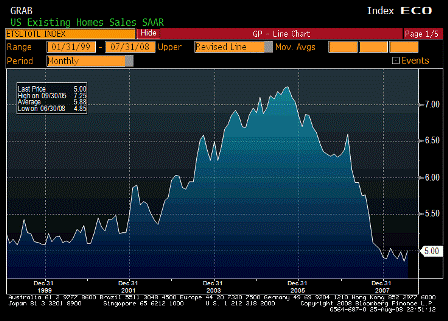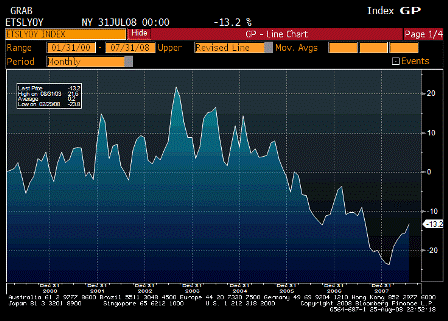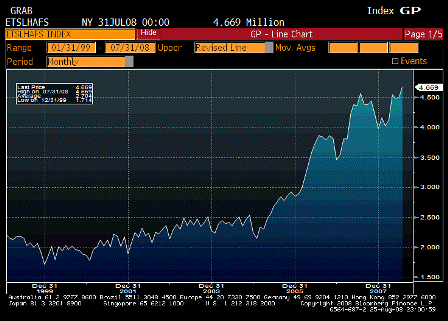[Skip to the end]
(a casual email exchange)
>
> On 8/24/08, Russell wrote:
>
> I found this an interesting read. Roach argues that economies and the US
> economy has generally been built on a consumption binge.
>
Right, consumption is the whole point of working.
Some of the output is consumed, some ‘invested’ for future consumption to be greater than otherwise, but it’s all consumption based. There’s no other point.
>
> And the reason why it happened was that the consumption was not based on
> income, but instead since 1999 is has been based on appreciating asset values
> and easy access to credit.
>
The budget surpluses of the late 1990s removed that much income and financial equity (net financial assets) from the non govt sectors.
The only way the economy could continue was accelerating non govt debt. Private sector domestic credit expansion was around 7% of gdp by 2000 before it collapsed due to lack of income and financial equity to support that kind of credit structure.
1% interest rates didn’t turn it around. It was the tax cuts/spending increases/larger govt. deficit that turned it in 03. And as that tail wind was allowed to blow out it all slowed down right up to today. There was a small burst due to the private sector deficit spending due to the sub prime fraud, where lender’s equity fraudulently got spent on houses.
And, again, it was the fiscal package that supported gdp in q2 and q3, along with exports, which resulted from foreign cb’s cutting their accumulation of $US financial assets.
>
> Sees a slower global commodity market in the next couple of years as ASIA GDP
> slows as a result of a slowdown in US consumption.
>
Consumption will slowdown if agg demand isn’t supported by govts as they all implement demand draining tax advantaged savings incentives (pension funds, ira’s, ins reserves, etc.) that require deficit spending for some other entities sustain demand.
And govt deficits are the only ones that are independently sustainable. Non govt entities have limits they hit periodically.
>
>
>
> The key question going forward is whether an adaptive and
>
> increasingly interrelated global system learns the tough lessons
>
> of this macro upheaval. At the heart of this self-appraisal must
>
> be a greater awareness of the consequences of striving for
>
> open-ended economic growth. The US couldn’t hit its growth
>
> target the old fashioned way by relying on internal income
>
> generation, so it turned to a new asset- and debt-dependent
>
> growth model. Export dependent Developing Asia took its
>
> saving-led growth model to excess: Unwilling or unable to
>
> stimulate internal private consumption, surplus capital was
>
> recycled into infrastructure and dollar-based assets – in effect,
>
> forcing super-competitive currencies and exports to become
>
> the sustenance of a new development recipe.
>
>
[top]








